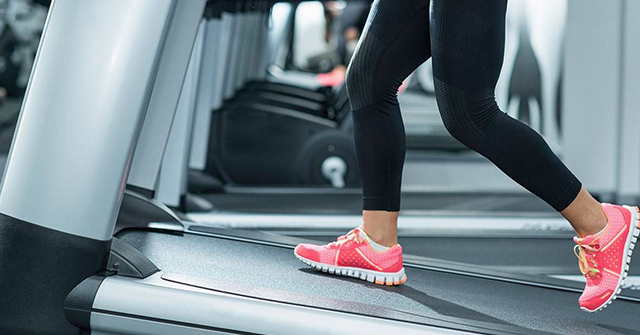Cardiovascular fitness is an essential part of good health. Both walking and running are two easy (and cost effective) ways to improve your cardiovascular health. But, is it better for you to walk or run? It’s a common argument. So today we are going to put walking and running toe to toe to battle it out. The result may surprise you!
Walk or run for time efficiency?
We all want bang for our buck when it comes to exercise. To get the most out of it for our health needs and goals in the most effective time, right?! Now putting the ridiculous aside (five-minute workout, anyone?), the reality is we are all pushed for time and consequently often our choice of exercise is dictated by tight schedules. So, it is a no brainer that running will raise your heart rate and burn more energy than walking for the same amount of time. For example, 10 minutes of running burns 100 calories vs 10 minutes easy walking burns 30 calories (based on 70kg person). While, both activities are a terrific way to spend time, if you are time poor then running is a better investment.
Round one winner = walk or run
Counterpunch – Studies suggest that if walkers expend the same amount of energy as runners, will see the same health benefits of reduced risk of hypertension, high cholesterol and diabetes. So, you could up the intensity of your walking by incorporating hills (or an incline on treadmill). Or, try wearing a weight vest to get more ‘burn’ for your time. Additionally, increase your pace from leisurely to a true ‘power walk’ speed!

Walk or run for weight loss?
Running is often the go-to workout for people to shed those extra kilos. The science says there are several reasons for this. Firstly, running expends 2.5 times the energy than walking the same amount of time. Secondly, running may naturally supress your appetite.
If weight loss is your goal, then remember that aerobic exercise (whether that be walking or running) is only a small part of the pie. The biggest slice of the weight loss pie is the amount you eat! This is where research is favouring running, over walking, for weight loss. Studies have discovered that running has more of an effect on appetite regulating hormones than walking. Runners were found consume 200 fewer calories than they burned leaving them in calorie deficit – which leads to weight loss. This compared to walkers consuming 50 more calories than they burned – which eventually could lead to weight gain!
Round two winner = walk or run
Counterpunch – You are still burning calories with brisk walking and can certainly burn the same number of calories as running, you just have to up the intensity and/or go longer! And armed with this knowledge, walkers can now be reminded of the quantity that they eat. Remember, you don’t need to ‘reward’ yourself for your great walk with extra calories.

Walk or run for a better heart?
Both vigorous walking and running can improve cardiovascular fitness. The important part of this is to keep your exercise ‘aerobic’ with your heart rate elevated for around 20 minutes or more per session. This will result in the strengthening of your heart, as well as your skeletal, muscle. Your heart adapts with consistent effort. When your heart pumps blood more efficiently, your resting heart rate is lowered. But, not all running is equal. Research has found that prolonged endurance exercise may have adverse effects on your longevity, heart health and immune system. Remember rest and recovery is just as important in improving heart health as the exercise itself.
Round three winner = ✓ walk or ✓ run
Counterpunch – Consider incorporating both running and walking into your fitness regime. Alternating days or even intervals of each can have benefits beyond heart health, such as a reduced risk of repetitive strain or injury.
Walk or run for reduced injury risk?
There is no question that running puts more stress on your body. It increases the risk for injuries to joints and muscles, not to mention long term repetitive strain conditions. Studies have identified that running impact forces on your body are substantially greater than walking at the same intensity. So, with walking you can still achieve a great aerobic workout with a lot less orthopaedic stress (load on your joints).
Round four winner = walk or run
Counterpunch – Ensuring you complete dynamic warm up and cool down routines can help prevent running injuries. Regular flexibility and stretching practices, specific to the large muscles groups used in running (think core, glutes, quads and hamstrings) can enhance running biomechanics. This in turn decreases risk of injury. Common sense also plays a part in preventing running injuries. Avoid ramping up your volume or intensity of running from zero to marathon efforts in short periods!
And the winner is…
There is no clear knockout winner.
It comes down to YOUR needs, goals and inclination. However, two things that all fitness professionals agree upon. Firstly, whether you walk or run, it has to be consistent and satisfying for you, otherwise you won’t persist. Secondly, whether you walk or run the time spent on either is very beneficial for you in improving sleep, regulating mood, reducing stress and refining your overall health.
To Run or Walk – Your Choice
Running is not for everyone. Ensure you to build into it and listen to your body to avoid injury. Walking is much less stress on your body. However, not all walks are equal -compare power-walking and walking up hills to a leisurely stroll.
To Run or Walk – Our Solution
Check out the Active8me running programs to get you started with 10km or propel you further with half or full marathon plans (including all of your nutrition and mindset needs). All of the Active8me programs incorporate a mix of high and low intensity sessions, for all the reasons above.












